#Reward vs. Sacrifice
Text
The Art of Patience: Unlocking Potential Through Delayed Gratification
In a world that moves at the speed of a click, the art of waiting may seem like a forgotten melody. Yet, it is in the quiet symphony of delayed gratification that the most profound life achievements orchestrate their debut, one that leads to greater success and fulfillment in the pursuit of our dreams.
Understanding Delayed Gratification
Delayed gratification is the ability to resist the…

View On WordPress
#Achieving Dreams#Cultivating Willpower#Delayed Gratification#Embracing Sacrifice#Future Rewards#Inspirational Growth#Life Milestones#Long-Term Goals#Mindful Living#Overcoming Temptation#Patience and Success#Personal Development#Resilience and Perseverance#Reward vs. Sacrifice#Self-Discipline#Strategic Goal Setting#Success Mindset#The Power of Patience
0 notes
Text
Writers who use imitative harmony + the movement of their language to evoke meaning are so great to re-read once you’ve learnt this language, if you’ve read them in translation before, it feels like the best reward. I’m reading Annie Proulx in the original for the first time, and so much of her writing style was just not salvageable by French translators (< my condolences), because she intertwines sound with meaning so often, at least in Close Range, and French just doesn’t sound the same! so by translating the meaning you’ll sacrifice a lot of the style... It reminds me of a haunted house book in French that also made me think “haha RIP translators” because it made great use of sound—a lot of “u / eu / ou” to create a sort of sinister howling effect in some sentences, and one sentence about a closed door used “i” and “rr” sounds to give an ominous “creaking open” sensation without actually opening the door in the text...
This kind of thing always makes me reflect despairingly on how many authors I’ll never get to appreciate fully as I can’t read them in the original, but I’m glad to re-discover Annie Proulx at any rate! I mean compare the sound of a phrase like “a hundred dirt road shortcuts” to the French “des centaines de raccourcis, des routes de terre”... First of all the English phrase sounds clippety-cloppy, it sounds like hooves on a dirt road in a way that’s very hard to preserve in a language without syllable stress, but also the French language demands that you turn it into ‘a hundred of shortcurts of roads of dirt’, so it’s best to dilute it into two phrases, and you just lose the clippedness. It sounds less tight, more leisurely.
Same for the phrase “the tawny plain still grooved with pilgrim wagon ruts” vs. “la plaine fauve encore marquée des ornières laissées par les chariots des pèlerins.” That’s a 54% expansion ratio and once again you turn the tight clippedness of ‘grooved with pilgrim wagon ruts’ into ‘grooved with the ruts left by the wagons of the pilgrims.’ You just can’t avoid it, French words have to hold hands in a long procession rather than being stacked like pancakes on top of one another. And sometimes it makes for lovely stylistic effects too (*), but it doesn’t fit the style of a text like this one, which uses rhythm and sound in a very un-French way—rhythmicality in French tends to rely on long flowy phrasings rather than the potholed ruggedness this story demands. (I saw a NY Times article describe it as Annie Proulx “mining the ore of language out of a gritty Wyoming rockscape”)
The rhythm of this whole bit is so neat, you can snap your fingers along with it: “hard orange dawn, the world smoking, snaking dust devils on bare dirt, heat boiling out of the sun until the paint on the truck hood curled, ragged webs of dry rain that never hit the ground, through small-town traffic and stock on the road, band of horses in morning fog...”
The French version is not finger-snapping material but you can tell the translator did her very best to preserve the author’s intention by creating interesting rhythms in French as well. For “hard orange dawn” she could have kept close to the original with, say, “la dureté orange de l’aube” but instead she chose to turn ‘hard’ into a four-syllable adjective (éblouissante / blinding) to end up with a noticeable rhythm—“les aubes orange, éblouissantes,” one-two-three-four, one-two-three-four (and she made ‘dawn’ plural for the same reason.) She wasn’t able to preserve the g/r alliteration of “GRooved with pilGRim waGon Ruts” (although her translated phrase also has a lot of R’s) but she did preserve the ‘sss’ alliteration of “Smoking Snaking duSt” (“pouSSière Serpentant Sur le Sol”). Even with languages as close as French and English, for every stylistic effect you can save you have to sacrifice a few, or replace them with opposite effects which align better with your language’s notions of literary style (like with the orange dawn bit, doubling the length of a tight phrase so it can sound rhythmical).
You can tell all throughout the book that a lot of thought and care went into respecting Annie Proulx’s writing choices and you still end up with sentences that sound and move so differently. You get to see the limit of translation when authors fully lean on their language’s syntax and melody to help convey meaning, like poets do!
(*) Re: English stacking words and French linking them—this reminds me of an essay I read by an English translator of Proust who despaired of this difference in the opposite direction—saying some long, descriptive phrases in Proust with articles & prepositions linking words, and commas linking phrases with regularity, read like telling the beads of a rosary. And the sensation (or a lot of it) had to be sacrificed because English just does not use as many linking words as French, information is conveyed in a more economical way, so a lot of these sentences with a hypnotic rhythm like “the A, of the B, of the C, whereby the D, of the E, on an F” were often not achievable with English syntax or created redundancy (e.g. having to use ‘that’ or ‘which’ 5 times when French used different tool words). But he said he did try to form sentences that had this continuity, and meditative quality.
I don’t have a conclusion to this post other than to say something precious will be lost if human translation is replaced by AI translation, because literary translation involves creativity and ambiguity and aesthetic considerations and a dimension of instinctual feeling for your own language and the original style, and I don’t think any amount of data and processing power and artificial neural networks will yield the flavour of literary quality that emerges from human sensibility and care, from someone reading a sentence and thinking “this feels like hooves clippety-clopping down a dirt road” or “this feels like rolling the beads of a rosary” and starting from there...
#language tag#not sure if imitative harmony has the same meaning as harmonie imitative now that i think about it#in french i was taught that it’s a broader more ‘diluted’ stylistic device than onomatopoeia#as in writing 'bzzz' about an insect flying is onomatopoeia#writing a sentence about an insect with several 'b' and 'zz' sounds here and there is imitative harmony
2K notes
·
View notes
Text
Devildom "Marriage/Proposal"
Again. Probably not too Christian-coded in Hell.
Contents: Satanic themes, possessive behavior mentioned
~♡♡♡~
First off, there's a big difference between a demon bonding with another demon vs. binding to a human. There's a lot more equal ground in the former, but the power dynamics are inherently different in the latter.
Traditionally, a demon "marrying" a human is usually used as the highest form of reward to an incredibly loyal follower. It's basically a way for a demon to point them out and make it clear, "This one is my favorite!"
Demons binding themselves to humans out a genuine connection is not unheard of, of course, but it's frightfully rare. Only handful may every do this at a time and not even Solomon has managed to pull it off despite the number of pacts under his belt.
It's this rare because to reform the new pact, the demon has to give up their grimoire (the books that more or less act as substitute for a demon's heart and soul) to their partner. It's like handing away the essence of their very being to another.
When demons bind with each other, the grimoire exchange is mutual. However, since humans don't have grimoire, binding to a human is seen as an act of extreme sacrifice and humility on the demon's part. It's truly the only kind of pact they have where the risks lie mostly with them.
Possessing a demon's grimoire is like literally owning the blueprint to their bodies. All of their powers, history, thoughts, and fears are detailed out within them. Every single weakness or spell to control them hides inside as well...
Because of this, demons take this decision very, VERY seriously. If your relationship falls apart, you don't want something that important left in the hands of your ex. A vast majority of demons never even show their grimoires, much less give them away.
A demon will only ever have one grimoire to share, so they can only ever be bound to one individual at a time. A human can technically be bound to multiple demons and having a binding pact does not erase lesser pacts, but again, it would be rare.
When an individual is in possession of a demon's grimoire, they will always be able to materialize it with just a slight flick of the wrist. Having it on their person will also be enough for them to summon the owner at will, barely a whisper necessary.
A demon will already show up stronger than usual if they're summoned by their grimoire, but using any added enchantments inside will only increase their power tenfold. A good caster can turn their partner into supercharged war machine with minimal effort.
There's a certain oneness between the pair that comes from binding that goes far beyond your average pact. The demon and their partner get the heightened ability to "read" each other. It's not full on telepathy, but they gain a preternatural sense for just how the other is feeling. An entire conversation can be held in the span of seconds with merely few glances and a shrug between them.
Demons are also EXTREMELY protective of their bound partners, which kind of makes sense considering what they're carrying around. They're not very good at hiding it either. We're talking full fangs out and deep, guttural growls at even the most minor of threats.
The offer of the grimoire is technically seen as the "proposal" and acceptance commences the "marriage." It's a big deal with when high-ranking demons decide to do this, so it's often celebrated by a public wedding ceremony.
The Grimores
Lucifer's grimoire has a real gothic flare to it. The whole thing is jet black leather with blood red rubies fixed to the spine and fine layer of gold leaf pressed into the corners. No matter where it's being kept, cover will always feel a bit cold to the touch... The pages are thick and textured, with every word inside written inside done in a careful, nearly mechanical hand. Perfectly legible. Technically flawless. Though certain pages are written with some hesitation, particularly the ones that go over his past...
Mammon's grimoire is, arguably, the most beautiful of the bunch. It's snow white with brilliant gold accents on the spine and along the edges. His personal sigil, painted in shimmering light, takes up most of the front cover and mesmerizes any eye that catches its shine. It's a little on the slim side, though, due in part to how thin pages are inside. Reading it can be a bit messy because the caster can always see whatever words have been scrawled out on the back of the page...
Leviathan's grimoire looks like something straight out of a sunken treasure chest. The brownish-violet leather used to bind it feels real, and it is, though it couldn't have come from any mortal creature on land. The edges are worn down and cracking from neglect, giving the whole thing a certain fragility over the rest... The pages are yellowed and hard from water damaged, yet the words inside still survive... even if parts of them are a tad smudged.
Satan's grimoire could probably pass for 18th century notebook. It too is leather bound, but it doesn’t have the same flare as his older brothers'. If anything, it has a very DIY feel to it, where the cover has a little glue in places it shouldn't and the rough-feeling pages don't all fit quite right. It feels more like a field journal than a demonic tome, perhaps adding to the distinct aura of rebellion radiating off of it... The script inside seems to change from page to page with some part written neatly and other parts apparently scrawled out in a rage. Legibility may vary.
Asmodeus' grimoire looks more like a decorative art piece than a book at times... The wine red cover is smooth and shiny with polished gems affixed like a spider's web on the front. Asmo's grimore is unique in that it is the only one that comes with a lock on it, one that can only be lifted by a spell only he knows. The penmanship inside is naturally beautiful, though sometimes the added flare of loops and flourishes gets in the way keeping everything readable.
Beelzebub's grimoire is deceptively simple looking compared to the others. It looks like your standard leather-bound book and aside from its surprising thickness, not much stands out about it. Even the engraving of his sigil on the cover doesn't have any extra color or shadow to it. But when it's open, the most gorgeous words lie inside as if penned by a master calligrapher. Every bit of space is used appropriately and each letter is clean, clear, and fluidly handled. It's not only legible, it's breathtaking and obviously done with a lot of time and care.
Belphegor's grimoire looks like a void in the space around it. It goes beyond the jet black of Lucifer's cover to an almost true black from cover to pages. You wouldn't even know that it's made of leather unless you felt it because it reflects no light and it betrays no design. Running a hand across it, though, does reveal the ridges of Belphie's sigil craved into the front and back cover. The black pages all have words are written in a bright, silvery, and iridescent ink. Parts of the pages also look seem to contain spilled stardust ready to fly off into the air. The penmanship is a little simple, compared to the rest, but nothing that can't be skimmed at a glance if need be.
Diavolo's grimoire could kill a man from its weight alone. The book is far too big for any shelf and thick with heavily textured, papyrus-like paper. No matter who has it, it will always feel as if a supernatural force is trying to pull it from their hands... Seeing much past its burgundy, black, and gold cover is more or less impossible but what's there truly befits royalty. Every aspect of the design is flawless, with polished onyx as black as night embedded in the spine and ancient symbols peppered between golden spindle-like filigree. One can only imagine what exactly is so forbidden on the inside though...
Barbatos' (true) grimoire is an honest to god mystery... No one has ever seen it and Solomon theorizes that he keeps it in a particularly empty timeline. If asked what it looks like, Barbatos will share that it's simply "a green book," but not elaborate much farther before changing the subject... One has to assume, though, it's probably as thick as a tree trunk with all the history within those pages and for the cover...? He's had all of the time in the world to make it something truly special.
#obey me#obey me shall we date#shall-we-date-obey-me#obey me lucifer#obey me mammon#obey me leviathan#obey me satan#obey me asmodeus#obey me beelzebub#obey me belphegor#obey me headcanons#obey me worldbuilding#obey me diavolo#obey me barbatos
2K notes
·
View notes
Text
Reasons to Kill Your Characters
Killing your characters at the right time (and having a reason behind it) is important. Here are some reasons behind why you might want to kill a character or two.
1) It can serve as poetic justice. This is when the bad guys are punished and the good guys are rewarded. When the antagonistic force finally gets what they deserve, it can satisfy the reader. If you’ve ever watched Game of Thrones, you know how angering it is when the bad guys always preserver. Giving them a well-deserved demise can be like lemonade on a blistering hot day for your reader.
2) Can death strengthen your current theme? Is your theme love, friendship, betrayal, good vs. evil, survival, etc.? Death can be used to intensify each and every theme. Someone who’s afraid to love because of past loss, a friendship bond broken by a death, a betrayer killing your protagonist's friend.
3) It can develop your protagonist and advance the plot. While you might not want to necessarily kill a character for the sole purpose of hurting your protagonist, if the death does achieve that, you’re developing them! Does this death motivate them to push forward? Does it put a hole in their plan? Create new conflict? Deaths can be great for moving the plot forward or putting obstacles in the way of your cast.
4) Killing certain characters can bring closure to their story/arc. Sometimes death can be the best way to end an arc. Depending on who the character is, after they’ve served their purpose to the story, is it better to let them linger, have their story continue off page somewhere or to kill them?
5) Death can build tone. If your tone tone is happy and lighthearted then this isn’t for you. However, if the tone you’re going for is tragic, dark and/or dreary... death can intensify that vibe. (Not just the death of characters... but the death of a time period, happiness, animals, flowers, etc.)
6) Death adds realism. Loss is apart of life (sadly). Is it actually realistic for everyone to survive at the end of an epic fantasy journey? Especially when most of them are novices learning along the way, running into skilled villains, dangerous creatures and mysterious illnesses? Death comes and goes whenever, wherever. This unexpected element can add realism to your story.
7) Shock the characters and your reader. This one is risky. You’ve probably heard it before-- killing a character out of the blue with no foreshadowing or reasoning can upset the reader. However, you can still have an abrupt death that has meaning. A selfish (yet beloved) character who suddenly sacrifices himself for another. He wasn’t expected to die, but the way he did had meaning.
Instagram: coffeebeanwriting
#writing tips and tricks#writing tips#writing advice#creative writing#writeblr#writing blog#how to write#writing help#writing fiction#writing prompts#fantasy writing#authortips#authoradvice#writingtips#writingmemes#writers blog#writingblog#authorsblog#howtowrite#writingtipsandtricks#writerscommunity#writers community#writinghelp#writingprompts#writertips#howtowriteascene#writingfiction#fictionwriting#fantasywriting#writing memes
1K notes
·
View notes
Text
everyone is like: if wei wuxian told everyone he gave his core to Jiang Cheng, all of this wouldn't have happened!
me: if he told jiang cheng, it would be WORSE.
consider these points:
Jiang Cheng was a newly appointed sect leader, hell-bent on revenge, finally surpassing others. He would emotionally break if he finds out it's all because of Wei Wuxian's core. He wouldn't want to lose it; but Wei Wuxian holding that over his head will make it terrible for him; rage, tantrums; in that war-time would have literally robbed him of his senses.
This is a war. If some people find out Wei Wuxian doesn't have a core, what's stopping the enemy from finding out? Even so, there would be people who wish to kill the ever-powerful son of a servant. The hundreds-hole curse could only succeed because Jin Zixun had low cultivation. Think of how many enemies (Wens, and the others) Wei Wuxian had. They don't dare curse him because 1) they believe he has superior cultivation and 2) if he comes for revenge with his stygian tiger seal and chenqing, it simply wouldn't be worth it. So, high risk and low reward. but in actuality, if someone did curse him, without a core to cleanse him, it would be fatal!
As the "son of a servant" and "wielder of immense power," his place in the cultivation world was already unstable. If they find out he doesn't even have a core, he cannot stay in the cultivation world! If he leaves, then there's no protection guaranteed for him from those who wish to claim his power anyway!
Literally, the only ones who would genuinely care would be Lan Wangji and Jiang Yanli. And what could they do? Lan Xichen would be sympathetic, but when has sympathy saved lives when there's no follow-up action? Nie Mingjue would commend his sacrifice, but will he save the Wens? Nope. Nobody would magically go like, "oh, let us help wei wuxian who doesn't have a core tragically."
Among the general public, would anyone look at it as anything other than a grand sacrifice for his superior? "Wei Wuxian is really loyal," and when he saves the Wens, it would go down the path of, "Can't believe he betrayed the Jiang Clan."
The only one who wished to know the why's and the how's and the reasoning behind it all was Lan Wangji. Lan Wangji, who would try his utter best; but Wei Wuxian himself was so powerful. Xiao Xingchen and Song Lan were powerful. Wen Qing and Wen Ning were also powerful. All the righteous people had tragic ends - if Lan Wangji was allowed to know, he would push harder at Wei Ying. But will Wei Ying accept it? Will he feel a certain disregard of respect? A lack of trust from Lan Wangji because they dont have the fundamentals down?How can it magically make things alright, when their issues go deeper than Wei Wuxian being on an "unorthodox path"? So, who's to say, even if Lan Wangji realized it all, somehow forced himself into Wei Wuxian's space when Wei Wuxian did not want it with some OOC syndrome, but even then what can he do? In the end, rather than just one, both would die. The odds are bad when it's 1 vs 3000, but is it much better if it's 2 vs 3000?
Wei Wuxian's arrogance protected the secret that would've signed him out of the war, out of the cultivation world. The fear people had for him protected him. Even after his death, they only noticed the annihilation of minor clans because "oh no yllz is here to take revenge!" If he acted weak and approachable and sad, just how few would hold true empathy compared to all the many that would see an opportunity to strike? Whoever wields power, speaks out, and is from an unproveleged background yet sitting among the gentry is already an outcast.
The only way he wouldn't have died were if he were someone who bowed to servitude, if he kept quiet, if he counted his losses and gains like Jin Guangyao. Will this harm me? Yes. So I cannot do it.
That's not Wei Wuxian.
"Let gains and losses remain uncommented upon." If the whole world wishes to kill innocents to satiate their own hatred then the whole world is wrong, and he won't stand up for it - whether or not, he has a romantic relationship with Lan Wangji early, or if he's actual siblings with the Jiangs (like actually adopted.)
Whether he wields a sword or his flute or nothing at all; whether he's loved or hated, he is bound to be resented by those who are hypocrites. The loss of his golden core won't shake them with empathy, but mockery not just towards him, but towards Jiang Wanyin as well.
"Congratulations, Jiang Cheng, for killing the man who killed your entire family (false, but you know) and was unrighteous!"
"But isn't the Jiang Clan only alive because of Wei Wuxian's core?"
"Jiang Wanyin is such a loser; he took his servant's core."
That would be a fucking literal nightmare. That is why, Wei Wuxian doesn't say a word or whine or cry. He probably thought he could wait until Jiang clan is in a better spot and tell only Jiang Cheng, but by then, he'd already been caught up in the Wen's situation.
#mo dao zu shi#mdzs#wei wuxian#canon jiang cheng#jiang cheng#golden core transfer#golden core reveal#mdzs meta#my meta#my essays
323 notes
·
View notes
Text
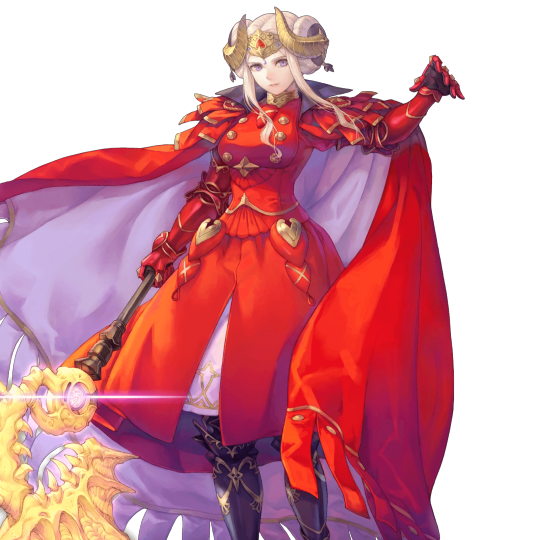

Propaganda under the cut.
Edelgard:
we love an axe user 🙏 she has a whole alter ego/persona just for conspiracy against the church. yeahhh she does a little murder but like, she’s kinda right
Caused insane discourse over whether she was right or wrong that has been going on for four years and will never stop.
She declared a war against the church and the class system of the continent, because she wants a better world, and that's nice she looked hot while doing it too, but her methods are questionable.
She started a war to get rid of the monarchy system in her continent since she believed the system rewarded only those with luck to be born with magic crests rather than those who worked hard. Said system combined with an underground organization that wanted to exploit said crests, allowed for her and her siblings to be experimented on and for most of them to die. Edelgard is desperate to get rid of the crest system fast, since the experimentation on her while it made her more powerful it also shortened her lifespan, war was the fastest way to get rid of it. In any other route of the games that isn't hers, it's heavily implied she sacrificed some of her allies to have an advantage on the battlefield. In the route "Azure Moon" where you support her childhood friend and enemy, Dimitri, in the war, Edelgard will sacrifice her body to become a monster and finally be able to kill you both. Even after Dimitri forgives her, Edelgard will try to kill him. I love her Qwq In her route you can help her become better, and see her hopeful rather than sunk in her obsession for her goal.
Edelgard is a total badass, kind of a fascist, and head of the war crimes committee. She partnered up with a group of comically evil mages in order to destroy the Central Church and overthrow the Archbishop/dragon that had controlled the country for over a millennia, declared war before the school year ended, roping all of her classmates into the conflict, and is even the first protagonist and first female character to fall into the evil emperor archetype. But with all her war crimes, she had a reason for everything, as she was trying to free the continent from the oppressive Crest system that determined people's value by their blood and caused her to be horrifically tortured as a child.
Almalexia:
Killed her husband in order to become a god-queen (based), tried to kill everyone else when her powers started waning (cringe).
#poll#tournament poll#round 2#edelgard von hresvelg#fe3h edelgard#fe3h#fire emblem three houses#fire emblem#almalexia#the elder scrolls#tes
155 notes
·
View notes
Text
I miss...giorno giovanna.
im thinking a lot about his complex role as a healer. his stand isn't meant to heal, he essentially brute forces it, which fits for the kind of person he is vs Josuke. furthermore, giorno is very self sacrificing in a very literal sense. he loses multiple body parts over the course of part 5 and just has to remake them. there's a ship of Theseus paradox here though I dont think THAT much of him was remade.
after the white album fight, mista tells him that their victory will be all of them surviving together as giorno once again tries to sacrifice himself. he takes this to heart, but soon afterwards its proven that this cannot always happen. His healing isn't enough. he can only give Bruno a little more time. and his reaction when bruno tells him this says everything.
Keeping everyone alive is his role, and he spends the early days of the part being given shit for being a newcomer, so having a solidified sense of usefulness only to have it swiped away so quickly when his stand cannot save his comrades is rough.
golden experience requiem is interesting in this context because its main purpose is protecting him from any and all harm. giorno has again, spent the entire part going through jojo typical levels of body horror, gore, etc, with the added benefit that he can remake limbs and chunks of flesh so they can do a lot worse to the part 5 cast and have them live. so in one sense, GER is a reward of sorts. he endured all that and his reward is never getting hurt again.
But at the same time, it's cruel irony that even with one of the most powerful stands in the world, its capabilities are on protecting him and no other. im sure that his enhanced capabilities make it easier of course, but the idea that he could still be too late will forever remain. whug.
#he was my icon for a hot minute in the past I remember#sorry I suddenly got hit with a rapid wave of remembering a past hyper fixation. giorno my beloved idc that people say hes boring think#about his actions and his powers please please please. and hes only my second favorite jojo lol#I also think an interesting aspect of him is how he DIDNT ever show a desire to be the boss in any way. he said 'gangstar' which is. vague#and just seems to be in the vein of 'responsible gangster helping their neighborhood' like his childhood hero but at every turn the#assumption is bruno being the leader and every time the idea of bruno leaving comes up giorno is greatly distressed. he actively plays#support hes the one lifting bruno up being THE main guy is not necessarily his desire but he has to be. it's his birthright. it was always#going to happen this way#jojo's bizarre adventure#giorno giovanna#jjba#vento aureo
143 notes
·
View notes
Text
I think we need to look at how the finale might play out from a non-shipping lens.
Hear me out.
Under this lens, the hardest thing Mobius can do, which is in direct answer to Ravonna's claim he never could make the hard decisions, is to leave his timeline in order to protect his kids.
Don can never protect Kevin and Sean as fully as Mobius can. His sacrifice will be protecting his children's timeline (and thus all timelines) forever, at the cost of not being there to experience his children's growth and love.
As for Loki, there are 3 themes that have been consistently set-up with a need for payoff since S1:
1. Loki's fear of being alone
2. Does what make a Loki a Loki the "fact" they are destined to lose?
3. Selfishness vs Sacrifice
The thrust of the entire series is Loki breaking out of the narrative constructs that necessitate his position as "villain". The answer to these set-ups, in order for the series to fulfill its thesis are:
1. Loki will NOT be alone.
2. Loki will win.
3. Loki will sacrifice.
His sacrifice will take 2 forms: 1. His personal safety in preventing the Loom Boom, 2. His emotional safety in allowing Mobius to return to his children.
Yet by letting Mobius go, setting Mobius free if you will, Mobius will have the opportunity to choose him the TVA, in an act of his own sacrifice.
Under the non-shipping lens, choosing the TVA to protect his kids is primary. Mobius's reward to make this sacrifice more bearable is an eternal friendship with Loki.
I am feeling fairly optimistic we will get a korasami-esque ending.
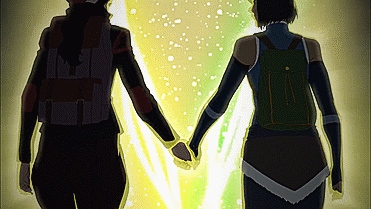
115 notes
·
View notes
Text
Gortash and Wyll mirror and foil one another in such an understated yet incredibly great way. Together, they really make one think about heroics and the allure of fame.
The former seeks public acclaim as the city's hero, willing to endanger people behind the scenes so he can rush to their aid in their (manufactured) time of need. For Gortash, the sacrifice of some is fine so long as the rest stand in awe of his power and adore him for saving them — for his benevolence.
He postures and plays the part of a supposed hero well enough, but it's so poignant that when he decided to get buddy buddy with the owner of the local newspaper, he couldn't even spare a bit of coin to the hostel next door that's in desperate need of funds to keep helping the refugees within the walls. Like the thought just never crossed his mind because it wouldn't benefit him — or more likely: the refugees are already such a touchy subject in the city, it wouldn't be 'good politics' to help them too much. It's not fluffy enough, it's too controversial for Gortash.
But Wyll's fame as a folk hero is almost an aside to him. He takes the ribbing from Shadowheart and Gale, coming off unfazed when they tease about The Blade of Frontiers, the big hero with a bigger name. No, what we see get to him are the smaller things in his career, footnotes the poets and biographers would spare only a sentence in their stories. Despite the years and adventures, what Wyll still holds so close to his heart are the people.
He still thinks fondly of the boy he first saved — who called him friend. Not hero, not savior. Friend. A title that is neither above nor below, but equal. And it continues to show where his morals and beliefs lie. When there's someone in need, Wyll always approves of helping them. Even if there is no reward, even when it's inconvenient.
And what wraps their stories up in this perfectly foiled box is Ulder Ravengard. The hero of the city, respected for his strength by both Wyll and Gortash.
And in both instances, Ulder is manipulated in the way he sees these two men. Mizora preyed upon his pride and sense of community to make Wyll out as some reviled glory hound that must be exiled immediately. And Gortash has infected Ulder with a tadpole to make him malleable, open to the idea of giving him more power within the city. To "help" the citizens, of course (wink wink).
Gortash is a man who wants to become a modern hero of legend VS. Wyll, a modern hero of legend who only wants to be a man.
125 notes
·
View notes
Text
Enemies/Rivals to Lovers recipe
(with the mild version aka Pride and Prejudice and the tragic version aka Romeo and Juliet)
Step 1: The main heroes are on the opposite sides of any scale (the grumpy one vs a cheerful one, a kind and stupid one vs a cunning and vile one, a demon vs a god, a master vs a servant, people of enemy states or absolutely different cultures etc.).
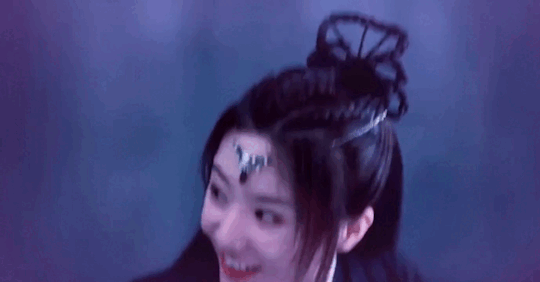
A cheerful and funny little bird demon-yao Qing Qing and a grumpy and stone-faced deity of Netherworld Xue Qianxun
Step 2: They are forced to communicate with each other without a chance to avoid it (e.g. an arranged marriage, being trapped somewhere together, working as a mole in the enemy camp etc.).
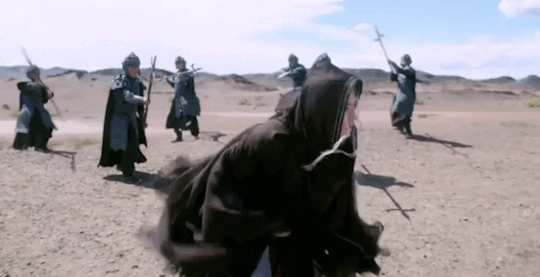


Asura King Xuan Ye plays out damsel in distress to get undercover into Heavenly Realm and his future lover Ran Qing is the one who "rescues" him.
Step 3: One party get impressed by unique character features of other (e.g. the person is the only one who isn't terrified by other's scary reputation, the only one who treats other party well etc.).


Even kings and princes are in absolute terror seeing Gwi - an immortal all-powerful vampire, and only Hye Ryung hates him so much that dares to bicker, scold and deny him.
Step 4: One of the parties takes the first step towards another and that melts another`s heart.
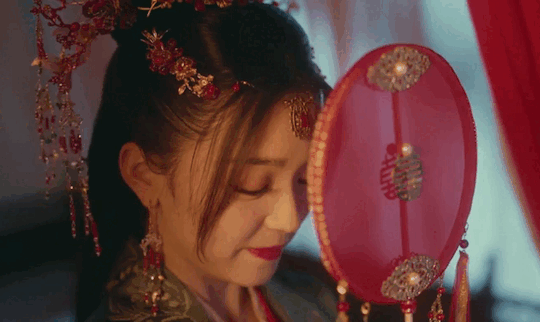
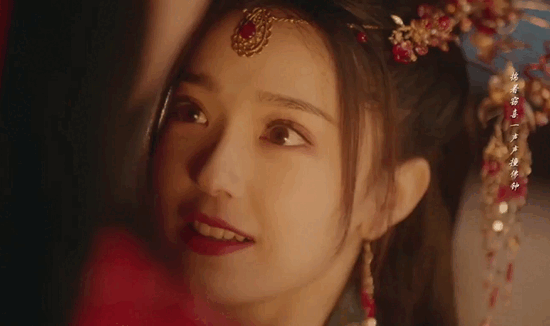
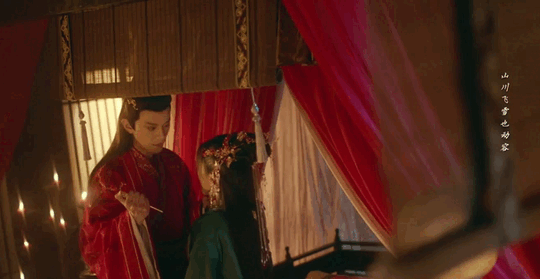
Even if Hou Ling Changjin hurt Princess Bao Zhu for her miraculous blood, she still cares for him and doesn`t hold a grudge.

"You are injured!"

Step 5: Here come mutual pining, UST and moral sufferings "what is more important: to fulfil the mission / to be accepted by the society / whatsoever or to love?"
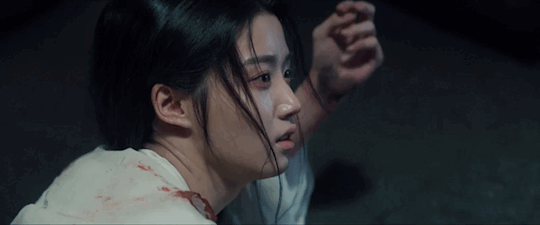
Gong Shangjue doubts if he can indulge himself being gentle with the girl he likes if she is an assassin from the enemy clan.

Shangguan Qian adds Shangjue`s favorite flowers into her tea and thinks about her mission of taking him down.
Step 6: It`s time to confess the feelings.
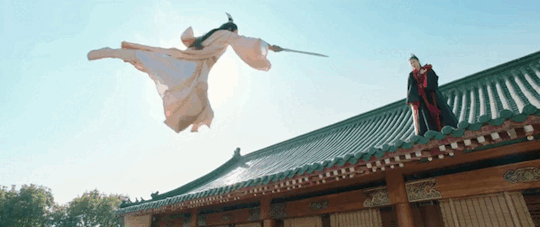
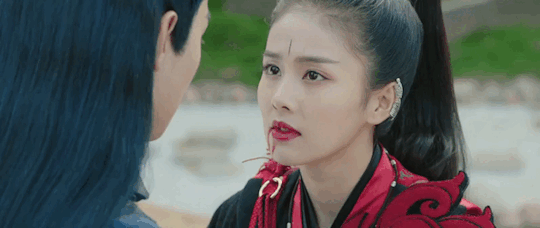
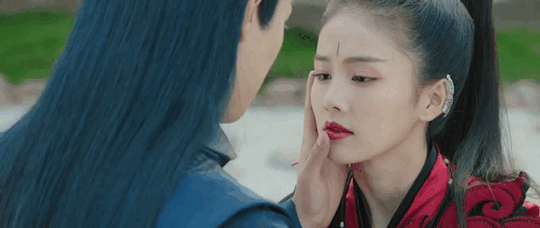
Leader of a diabolic sect Li Chenlan comes to save his beloved who hated him and tried to kill him and promises her to be her sword and shield. So romantic!
Step 7: The parties try to solve the problem that keeps them apart. If the problem is internal (it has something to do with beliefs and prejudice of a person), here it will be solved and «happily ever after» begins.
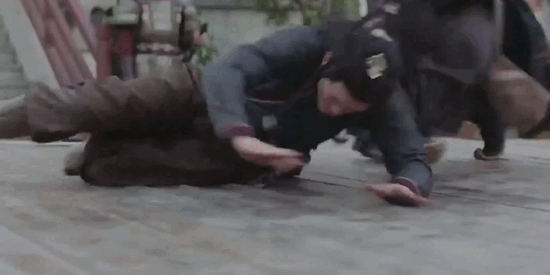
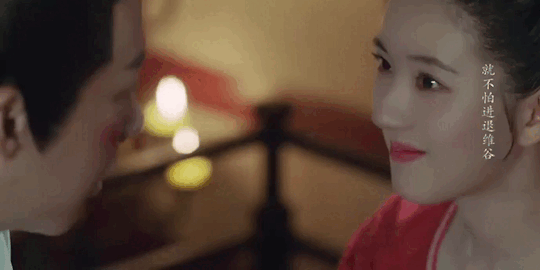
Despite of his low social status Hao Du ventures to participate in the competition, wins the right to marry the princess (who he is in love with) and dares to be honest explaining that he did it not only in order to save her from a Barbarian prince but because he truly wants to be with her.
Step 8: If the problem is external (there is a large-scale conflict and the parties are just some insignificant participants of it), one of the parties sacrifices themselves to solve the problem.


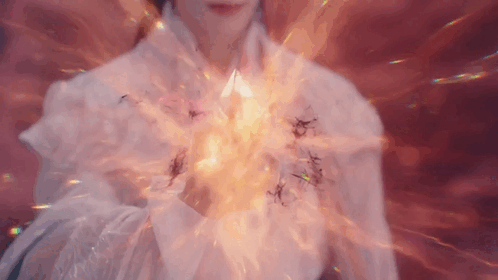
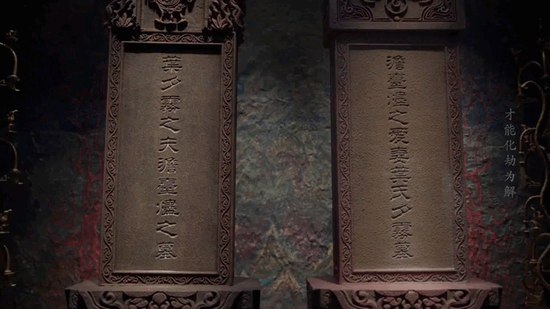
Before saving the world by the cost of his life Demon God Tantai Jin engraves his name on his own tombstone placed next to his beloved wife's one, so in the future she could mourn him in a suitable place.
Step 9: In a satisfying story there is a magical reward of party's brave deed, which is a happy end.


Demon Lord Dongfang Qingcang sacrificed himself in order to save the girl he loved and died but his girlfriend (who happens to be a Goddess with abilities to resurrect the dead) nurtured a piece of his primordial spirit for 500 years and brought him back to life.
Side note: If you want to add some chili pepper into your story, you can break this scheme any step from Step 4 on: pining could be one-sided, UST could never ever be resolved, characters could prefer their goals to love or maybe death or other circumstances would do them apart against their will.
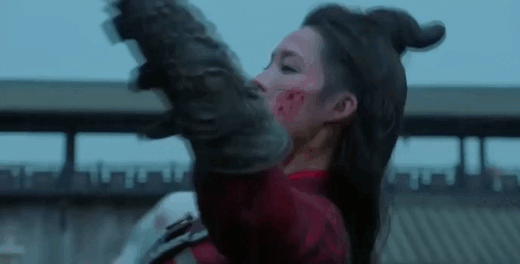
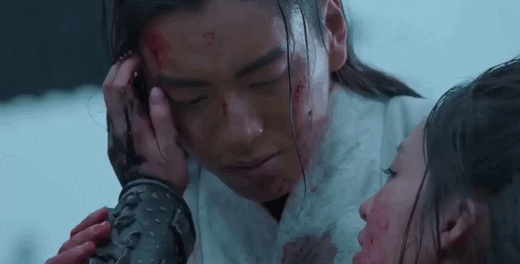
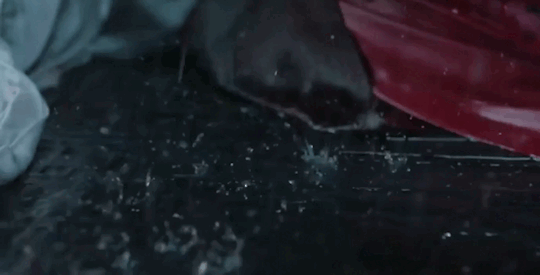
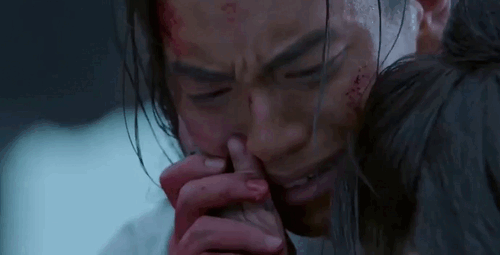
The Wolf and Ma Zhaixing finally got together but the cruel world couldn`t allow it to last anytime long.
Bon Appétit! Your Enemies to Lovers story is well-baked!
#enemies to lovers#rivals to lovers#cdrama#miss the dragon#immortal samsara#chinese drama#scholar who walks the night#butterflied lover#my journey to you#the legends#the long ballad#till the end of the moon#love between fairy and devil#his royal highness wolf#the wolf cdrama#SDabouttropes
55 notes
·
View notes
Text
Loved the religious inversion throughout The Owl House and how it came to the fore in the finale.
Here's the Demon Realm, with the main locales on the decaying body of the similarly demonic-looking Titan, whose name is invoked in a way similar to God, "Oh, Titan." He has a single heir, for whom he gave his own life to protect, the last of his kind.
The villain is the all-but-explicit Christian puritan witchhunter, who uses the name of the Titan to rally support for himself, the public narrative serving his own private narrative where he is the hero. But the truth is that the higher power whose name he borrows loathes him, because he hurts people on a personal and cultural level, with indoctrination and enforced conformity and oppression.
The main character is this kooky bi girl, misfit in just about every sense, fleeing from her own conformist environment. She bonds with the Titan in a very real way. She finds a family with the Titan's son and his adoptive mother. She befriends people and frees them from indoctrination to form a better community. She finds love. She builds unity in companionship rather than domination. She learns with eyes wide open, taking knowledge from multiple teachers and by watching the Titan himself and finding the glyphs he lets her see. Every time she messes up, she owns up to it, and makes earnest attempts to improve.
This leads to the most emotionally resonant deus ex machina ever. After finally finding self-acceptance, Luz is still willing to sacrifice herself, and her reward is resurrection with divine favor. She is the chosen hand of the divine, a sweet kid full of compassion and love and creativity who was happy to learn and self-reflect. She stands against a genocidal superstitious puritan who ruled as a tyrant over his people and abused his family.
It's just such a perfectly straightforward laying out of good vs evil that manages to be sneak up on you.
#toh#the owl house#luz noceda#the titan#king#emperor belos#toh belos#luz noceda is jesus#either that or king is jesus
33 notes
·
View notes
Note
what did you mean about laudna and ashton driving you nuts?
mmmmm. dangerous territory! for me, i mean. to indulge the side of me that don't give a fu about–
it's pretty interesting how this ep turned out to be a direct comparison between laudna and ashton and how they discover and come to terms with the idea that there is an option for them to ostensibly destroy themselves in the name of protecting/helping/saving the rest of the party
a few ppl have already discussed this with far more thought and nuance than i'm willing to put into words right now but something something both of them taking this as an opportunity to Be Useful and Contribute to the cause, blind or perhaps willingly ignorant to the fact that these people love them for who they are and that they don't need to Do Something in order to be loved - in fact, losing them is actually a far less acceptable outcome to the party than whatever reward they perceive to be gained from their self-sacrifice. which is all very sad and tragic and juicy and pulls at the heartstrings which i always love. but this is kind of where the similarities end?
laudna follows this with a conversation in which she tells imogen what she would want to happen in rather explicit terms. and when imogen responds by saying she'll do everything in her power to stop it from getting to that point, laudna says "i can accept that." the next morning, they tell the whole group what happened. on the other hand, ashton pulls fearne aside and has their own grave conversation but in more vague terms, at least in the sense that i don't think fearne picked up what they were putting down or at the very least wasn't given the opportunity to really process and respond to what was asked. and then ashton isolated the two of them from the rest of the group to undergo this transformation without their knowledge. all of which drives me nuts! to see the direct comparison in which one is so much more communicative than the other
and i don't think it's fair to say that this is a consequence of the party being poor communicators overall. it's somewhat reminiscent of vax's initial response to scanlan leaving in c1 - we don't know your mother's name because you never talked about it. aka there's a difference between ashton bringing up this desire or plan to hold both shards and everyone brushing it off/not sufficiently exploring it vs. ashton choosing not to ask for their opinions, ideas, or feelings about it because he thinks they won't let him do it. he unilaterally made the decision for everyone, which is the most frustrating part for me. they presume to know what is best for everyone, and they presume to know that this is the only option, despite being surrounded by not only some of the most powerful people on the planet but also the people who care for them the most. which he said himself: nobody will miss me when i die, given that we all die - implicitly saying that if i am the only one who dies, i know you all will miss me. so to me it feels disrespectful to them, because even having acknowledged that they care, he doesn't trust that they might have ideas for a better solution or that they might recognize what this means to him and try to help him survive it. or that they might not want to be "saved" if it means losing him. or that they might like to say goodbye.
i know many people are saying that this is in line for ashton's character, frustrating or not, which i think is true. but it feels stagnant to me. ashton has come a long way in terms of learning to care for these people but they have learned little about being cared for. and while laudna is trying to believe what others say to her (that they love her, that she's important, that she deserves life) with varying degrees of success, to me ashton feels like they have made minimal progress and/or aren't trying to make progress. they refuse to see bells hells for what they so loudly and clearly are - people who love and care for each other, ashton included. and unfortunately, 77 episodes in and coming up on a vastly important mission (the first in a while), this brand of hypocrisy (taliesin's words not mine!) and lack of awareness for the group's feelings in the name of High Risk High Reward is something i have a rather low tolerance for ¯\_(ツ)_/¯
and for the record i've been thinking about this a loooot because i know most of it is colored by my general apathy toward this character. and i understand that a lot of people who love this character are so so fascinated by and invested in what happened. but my apathy toward ashton is something that i've tried to circumvent or logic my way out of a LOT in the past few years and at this point it's kind of an immovable object. and doing mental gymnastics to try and enjoy someone that i simply don't makes everything so much worse! so i don't mean to rain on anyone's parade but these are my thoughts whether i like it or not
tl;dr the end of this ep didn't make me excited, it just kinda made me feel annoyed and crazy. sorry
#SORRY THIS IS SO LONG. things feel very very complicated still. in my brain. all jumbled#but the main takeaway is that i didn't like it. dkfjskdjfksdjf#anonymous#ask#answered#critical role#cr3#cr spoilers#cr meta#nova shh#cr negativity
84 notes
·
View notes
Note
HELL YEAAAAA LETS GOOOO
okay marika and radagon have a LOT of INCREDIBLY interesting dynamics here that, while not explicitly stated, seem to reflect some underlying gended dynamics going on in the lands between especially regarding Marika Radagon as Divinity
one of the BIGGEST examples here is the dichotomy of Active vs Passive. marika does not Act she Instructs. she instructs maliketh to slay the gloam eyed queen and seal destined death, she instructs godfrey to wage war against the fire giants, and she instructs the tarnished on their path to the erdtree and elden lord as we see via melinas church dialogue. contrastingly, radagon Does. radagon fights against liurnia, radagon marries renalla, radagon studies sorceries, radagon studies incantations, and pointedly radagon interacts with his children! we get stated lore about him interacting with miquella but no such lore about marika and HER SIX KIDS. marika distributes blessings but thats a very passive action, and in her OWN BOSS FIGHT she simply HANGS there. she has to transition to radagon to pick the hammer up!
in this way we can interpret marika as the golden orders Divine Feminine. she is passive, she blesses she instructs but does not Act, she is the reward won for the elden lord (who serves as the golden orders Intended Active Agent) and she is LITERALLY objectified by becoming a headless statue (only her torso is visible!) that the elden lord marries. she Has Heirs, she Blesses Heroes, she Instructs Her Lord And Shadow, marika routinely serves as the passive force in the lands between!
similarly we can interpret radagon as Divine Masculine. he goes to war, he chooses and marries a wife, and most especially he aspires to be the Perfect Hero by achieving physical and scholarly mastery over combat, sorcery, and incantations. radagon ACTS, he chooses his own wife instead of Being Married To, he interacts and raises miquella at the very least and studies WITH him, and overall if something is being done, radagon chooses to do it instead of using an agent to act on his behalf
we can therefore interpret many of the actions that occur throughout the story through this dynamic, especially as a source of conflict. many of the golden orders heretics defy this gender dynamic! the carian royal family had a line of queens, and rennala herself was a renowned, powerful, ACTIVE sorcerer. she led raya lucaria, and pioneered a new field of sorcerous study in the Moon. after her marriage to radagon, and therefore the carian merge into the golden order, rennala became passive and lost all her social standing in raya lucaria, mimicking marikas own passiveness (tho in rennala we see its poisonous effects in that by losing her agency she also loses much of who she is, becoming a motherly shell of who she once was).
while not strictly heretics, miquella and malenia themselves seek to break free of the golden order and this reflects in their gender dynamics. malenia is the more masculine of the twins, and acts as the Active Shadow of Miquellas Will. she Acts on his Instruction. similarly, despite being known as the Most Fearsome Empyrean, miquella works through Agents and through Diplomacy, and takes a passive nurturing role in the grander political actions the twins take. miquella Nurtures The Haligtree (through sacrifice of his blood), miquella will is acted through Malenia (who is his blade and serves as his Empyrean Shadow), and notably both twins are cursed explicitly due to radagon being the same person as marika!
marikas gender nonconformity serves as a major source of strife in the golden order, as liurnia falls to civil war (the cuckoos, raya lucaria, and the carian royal family), the twins are born cursed, and the elden ring itself is shattered by her, marikas only active action which serves as an attempt to destroy the golden order. radagons actions As Radagon are punished, the children he sires are forsaken or cursed (no ones really looking to rennalas kids as Scions Of The Golden Branch) because radagon is Marika Acting As Divine Masculine, and this is further symbolized by his red hair bearing the curse of the fire giants. Radagon Is Accursed because Radagon Is Marika, and marika is The Divine Feminine and thus is supposed to be Passive.
i wouldnt be surprised if this is a massive contributing factor in rannis decision to cast off her flesh, and her determination to do as much as she can herself. as an empyrean, shes slated to replace marika (and thus be relegated to Passive Goddesshood) and thusly rejects relying on Agents (iji, blaidd, seluvis, and the Tarnished MC) as much as she can, and why she does what she can to ensure you act on Your Own Will (repeatedly giving you outs to leave her, being surprised and somewhat thankful when you dont), and imo contributes HEAVILY to rannis trans-swag vibes despite being pretty clearly cisgendered (burns her old flesh, has a chance to remake her body and self image, chooses a form with long feminine hair and a delicate feminine face that is made in the spitting image of the witch renna who mentored her) which i attribute to ranni Choosing the femininity of her carian heritage, which itself is gender nonconforming to Golden Order Femininity
basically. radagon is marika acting out against Divine Gender Roles and being non-explicitly punished for that transgression, which escalates into an attempt to reform or destroy the golden order itself.
source: im trans and i think way too hard about gender dynamics in anything i hyperfixate on
oh my goddd this is such a great analysis and you’ve made so many interesting observations too… you’re making me think soooo hard about Marika contrasted with Ranni within this framework…
Marika being relegated to a passive, instructive role as god-queen makes her actions in the story and frustration with the Greater Will make a lot of sense. I think many of her actions as god-queen can be interpreted as attempts to carve out more autonomy for herself, rather than being the Greater Will’s passive pawn — such as her removal of the rune of death from the Elden Ring, her declaration to “search the depths of the Golden Order” rather than giving herself to “blind faith,” and of course her shattering of the Elden Ring. Then, because of the shattering, she is punished and imprisoned by the Greater Will.
Regarding the shattering, we can contrast Marika with Ranni’s actions leading up to the event: Ranni rejects her role as an empyrean, destined to become a passive god-queen like Marika, so she takes the active decision to initiate the Night of the Black Knives in order to slay her empyrean flesh. Marika then takes the action to shatter the Elden Ring (with her own two hands) in defiance of the Greater Will in the wake of Ranni’s rejection of the Greater Will’s prescribed role.
I think Ranni sees Marika’s fate as a passive pawn of the Greater Will as the worst possible fate for her — she admires her mother’s former strength and independence (taken away by the Golden Order), and wants to take that same active role in her own life. When Ranni finally confronts her Two Fingers, she takes up her blade and slays them personally.
Marika and Ranni both being prescribed a role that strips their autonomy by a higher power and then committing world-shattering actions to seize their own autonomy is literally soooo Gender of both of them… it totally reads as a subversion and rejection of Divine Gender Roles
#asks#elden ring#marika#radagon#ranni#such a great essay thank you for your service#also while i doubt trans ranni was intended in the game#i maintain the fact that nothing in the game objectively disproves it#<3
167 notes
·
View notes
Note
I still don't understand the important thing that Bakugou will do for the story. In many ways, Ochako took on such important roles that she changed society. She connected heroes with civilians. Now she will connected civilians with villians. Like with Deku and shoto. What about Bakugou? I still don't understand what is special about him, what can happen that will affect the story and the society. And I'm sorry for my English. I'm bad at this.
I'm not sure I fully understand what you're saying about Ochako's role. I don't see how Ochako's (or Izuku's, or Shouto's) role in the current arc is about civilians (or at least not yet).
But I have two answers to your question.
I would actually be excited to be you. You don't see where Katsuki's story is going right now, and that means you are more likely to figure it out right when Katsuki's character arc concludes. That timing would be so rewarding to understand the story. You don't HAVE to understand it yet. It's not complete!
To me, all the characters make up a piece of the overall story. If the overall story is about a societal shift from one way of thinking about heroes and villains to a new way, then Izuku's piece is about heroes needing to SAVE villains, Shouto's piece is about recognizing one's humanity before their quirk, Ochako's piece is about changing the mindsets of the civilians (and in the most recent arc about connecting with the villains kinda like how Izuku may do), Tenya's piece is about determining which parts of society's rules to uphold and which to break, and Katsuki's piece is about changing how heroes operate. So Izuku addresses villains, Shouto addresses humanity vs quirk, Ochako addresses civilians, Tenya addresses social expectations and rules, and Katsuki addresses heroes.
Katsuki's character arc has been about a boy who wanted to be the Number One Hero, the greatest ever, by himself--and how his vision of "Number One" changes into a leader who values teamwork and treats the "whole" as stronger than the sum of its parts. "All For One" and "One For All" and all that.
His story began in chapter 1 when all the heroes who were supposed to save him wouldn't do so. He saw heroism in Izuku (which made him self-conscious) where no one else did until All Might came along. He spends the whole story coming to terms with how he had one image of heroism that doesn't hold up in the face of All Might's heroism, Izuku's heroism, what heroism truly is. He regrets his weakness that he believes led to All Might's downfall. He tries to learn and change to become a stronger hero so he never lets anything like that happen again. He learns about rescue and sacrifice. He becomes a charismatic, unifying leader. He brings the whole class together to bring Izuku home. He rallied all the heroes at the UA battlefield to face TomurAFO without Izuku. He credited everyone behind the scenes for helping them have a shot at stopping TomurAFO. He rejected TomurAFO's philosophizing with insight and experience. He is the evidence that society can change, that things aren't as hopeless as TomurAFO makes them seem. Katsuki is uniting heroes to be BETTER than they have been in the past.

So yeah. From my point of view, Katsuki is addressing the problems with HEROES. He's making heroes be actual heroes.
#anon ask#ask pika#my hero academia manga spoilers#final showdown spoilers#katsuki bakugou#meta#alluratron
77 notes
·
View notes
Text
Round 1 - Side B
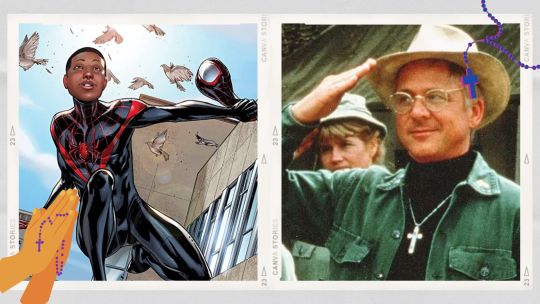
Propaganda below ⬇️
Miles
He was raised in Brooklyn, New York by a Hispanic Puerto Rican mother, so odds are he was raised Catholic.
His mom says "Ay Maria/Ave Maria, este nene me tiene loca!" minor spoilers for Across the Spider Verse, he tells his mom "Benicion" and she replies with "dios te bendiga" (blessing and God Bless you) (or something I don't remember, I've only seen the movie once)
There's something so catholic about the sacrifice Miles makes to be Spider-Man. Putting himself on the side to help his community. And not because he thinks he'll be rewarded with lots of money or praise, but because he loves his community. Good works are not mere external deeds, but the works of love. And love is not mere feelings, but the works of love (charity, agape)
John
he’s a priest. he can punch your lights out. he would never hurt a fly. he has connections in the black market. he gives everything he can to the local orphans. he will not hesitate to play pranks on you. he wants everyone to be happy. he has daddy issues probably. he wants a promotion sososososoooooo bad.
I accidentally submitted the last 5actors name but it’s the same guy
#miles morales#spiderman atsv#atsv#itsv#john mulcahy#m a s h#mash#m*a*s*h#cct polls#tumblr tournament#tumblr bracket#tumblr polls
124 notes
·
View notes
Text
Shou and his resistance team are based on the moon rabbit folktale (that's why he gets a haircut)
References are in his lackeys names / outfits + other
The story in short is about a rabbit who wanted to save a starving man, so he jumped into fire to become food for him. and then was rewarded for his kindness/self-sacrifice by being taken to live on the moon and he makes rice cakes there.
(other versions have different animals, an actual starving man or emperor or god; or the rabbit's gift is his image being carved on the moon (implied that he died in fire), or the rabbit making medicine on the moon)
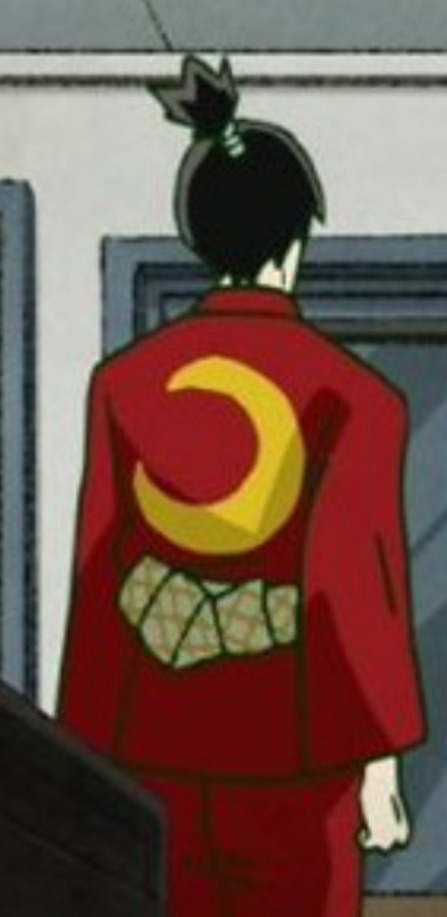

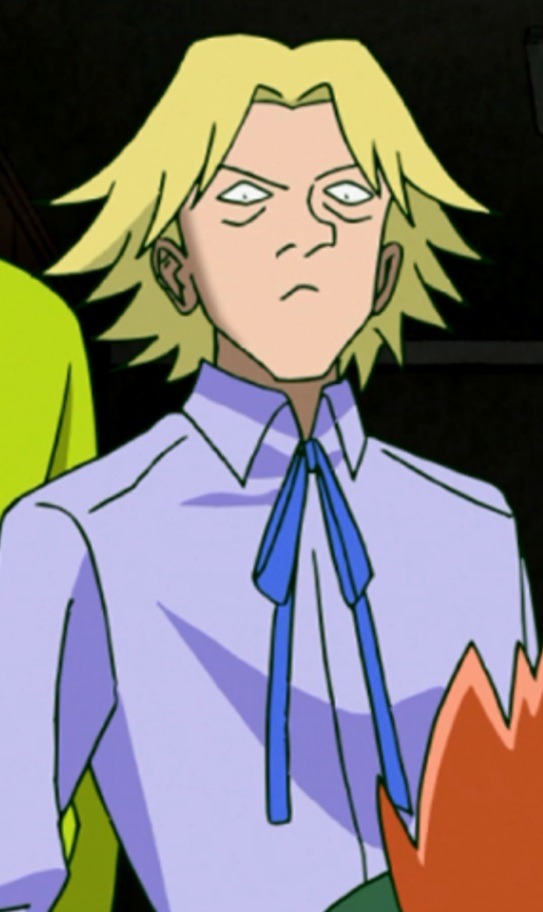
Ootsuki 大月; 月tsuki means moon, hence the crescents on his outfit
Fukuda 福田:
- is interestingly the name of a company that makes medical technology stuff/ healthcare products
- 田da means rice field , hence the plant on the H and maybe the white knots is a visual cue for rice
While in the Japanese version the rabbit makes rice cakes , in the Chinese version the rabbit is making medicine instead, so that's also related to his healing powers.
Higashio 東尾:
- hi 火 means fire
- 餓死 gashi means starvation. (the only one I had to skip the official way its written but if I were to guess I dont think starvation would be directly part of a name so yea)
Shou:
-Chinese zodiac sign: rabbit
- hair looks like fire
So, Shou is surrounded by moon rabbit references, and his arc is mainly about running away vs responsibility which parallels a story about self sacrifice (as kindness/virtuous mind you). That's reflected in wd arc and confession arc, as in both arcs Shou was prepared to die to stop Touichirou.
Because in confession arc even though Touichirou’s plan was to sacrifice himself…..he explained how to do it to Shou. the one with the self sacrifice metaphor…()
Anyway, Shou getting a haircut in the epilogue symbolizes realizing that he shouldn't sacrifice himself for others sake, like letting go of the fire that the rabbit would've jumped into.
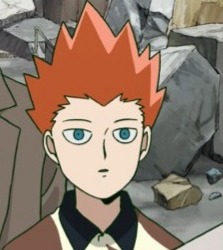

Bonus here's an official poster celebrating otsukimi

#mp100#mob psycho 100#suzuki shou#higashio#Ootsuki#fukuda#shou's lackeys#mp100 meta#mp100 analysis#mine#mp100 spoilers#edit made it shorter
233 notes
·
View notes